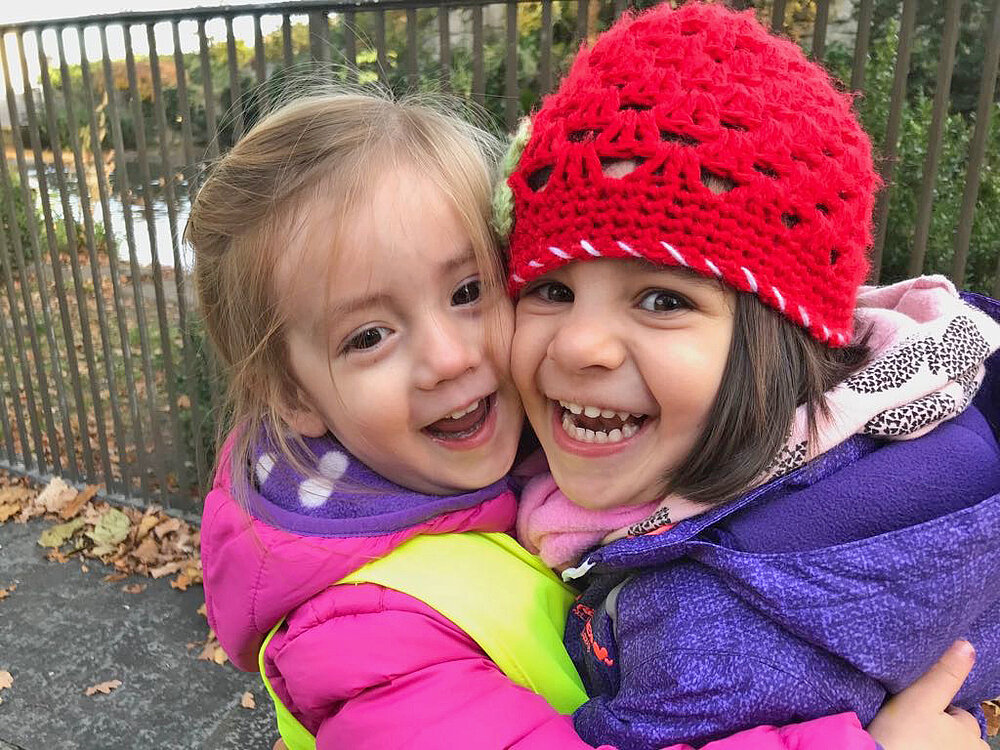Children and Kindness: Why Empathy also has to be Learned

Kindness is one reason why the educational area “Our World” plays a central role in the globegarden curriculum.
Who am I? How do others see me? Why are people different and often don‘t want the same things as me? Of course, children do not consciously ask themselves questions like these. Yet almost everything in their development revolves around the acquisition of social competencies and emotional intelligence – and this already from babyhood. Therefore, the educational area „Our World“ plays a central role in the globegarden curriculum. Here, among other things, mutual appreciation, kindness, tolerance and respect as well as conflict resolution approaches are exemplified and practiced in a playful way.
I am I and you are you
In the first weeks and months of life, a baby does not yet have a sense of self. Little by little, it learns that its behavior can make a difference. For example, it receives attention when it is hungry and cries. Over time, the baby increasingly sees itself as an independent personality. At about one and a half years, the child learns the difference between himself and others. He begins to recognize himself in the mirror and soon uses the pronoun „I“ for the first time. At around two years of age, children also understand that the other person has their own feelings, they can put themselves in other people‘s shoes and even have the first skills to comfort others. At the same time, however, their own will develops more and more strongly - the autonomy phase, more commonly known as the „defiance phase,“ begins.
Being against something makes you strong
Even if it can be exhausting when a child only says „no“ from one day to the next, likes to defend his toys from others by hitting or biting, screams, cries, throws himself on the floor and stomps his feet - the autonomy phase is an important step in the emotional development of a child, because he learns over time to regulate his own emotions, to be patient when needs are not immediately satisfied, to make compromises and to back down sometimes. This ultimately also strengthens his self-confidence, assertiveness and frustration tolerance, and paves the way for ever more empathy.
Recognizing the feelings of others
At globegarden, we not only support the children in their personal development, but also help them to learn how to interact with others in a loving way. There are various approaches to this, as the following examples show.
Positive role model: Children learn by imitating. That‘s why our pedagogical staff place the highest value on setting an example of empathetic, warm-hearted behavior themselves, being patient, friendly, helpful and polite in all situations, and pointing out possible solutions when someone else is hurt or sad.
Talking is golden: If you explain to children again and again in an age-appropriate way what the consequences of their behavior are, they can gradually put themselves in the shoes of others.
Reading aloud regularly: Stories are a great way to develop empathy. Children learn about empathy in an active-passive way and can even relate to many experiences they have not yet had themselves.
Practice makes perfect: In daily interaction, children learn that sharing can also be fun and that many goals are better and more enjoyable to achieve when working together with others.
Strengthen team spirit: Those who can empathize with others make friends more quickly and feel safe in a group. That‘s why it‘s important to us to teach children team skills with the help of role-playing or joint artistic and sporting activities.
Arguing is normal: Arguments and disagreements are commonplace among children. Adult intervention is usually unnecessary, but we help children express their feelings and needs and discuss in the group how to handle conflict situations without escalating the argument and emphasize the importance of kindness and respect, regardless of differences or disagreements.
Praise and recognition: When one child comforts another, stands by him or her, or gives him or her a treat, he or she always receives positive feedback for it and is thus encouraged to repeat his or her behavior.

